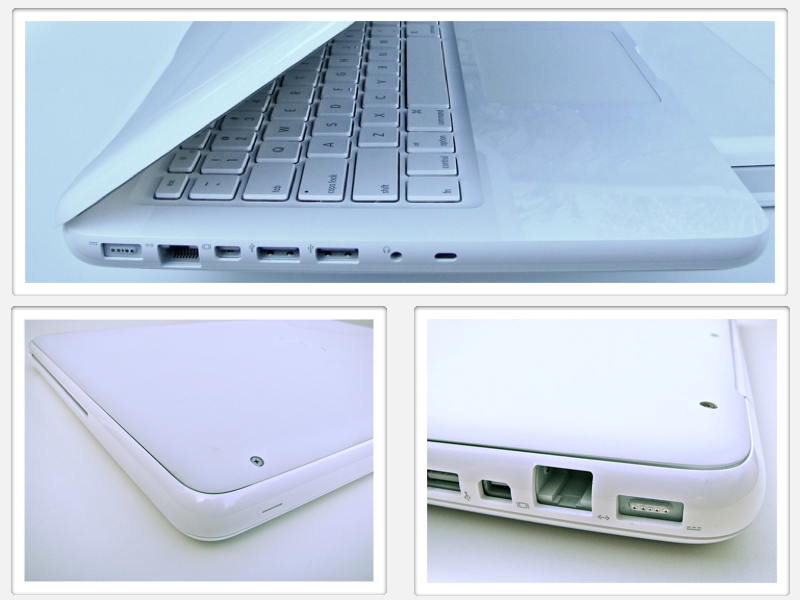Apple last week quietly made a change to its program regarding defective MacBook bottom cases, extending the coverage period from two years after purchase to four years.
First spotted by MacRumors, the program's extension comes as the original end-by date quickly approaches, and now gives affected MacBook owners four years from the original purchase date to make a claim.
In May of 2011, Apple initiated the bottom case replacement program for MacBooks shipped between October 2009 and April 2011, citing an issue in which the non-slip rubber bottom of the polycarbonate MacBook would separate from the chassis. Variations of Apple's rubber design can be found in current generation products like the Mac mini and AirPort Extreme.
Under the terms, which will remain the unchanged, Apple will replace any affected unit free of charge, regardless of warranty status.
Apple will continue to offer three options for case replacement: an appointment with an Apple Genius at an Apple Retail Store; repair through an Authorized Service Provider; and a do-it-yourself kit that includes all materials and instructions needed to replace the component.
The company notes that last week's extension may not be the last, as it will continue to evaluate the service data and provide further program supplementation if deemed necessary.
 Mikey Campbell
Mikey Campbell








 Sponsored Content
Sponsored Content
 Charles Martin
Charles Martin
 Christine McKee
Christine McKee
 Malcolm Owen
Malcolm Owen



 Amber Neely
Amber Neely









6 Comments
That's pretty awesome.
That's pretty awesome.
Apart from the fact that they were defective in the first place.
I'd rather they offer a program for replacement of the defective DVD readers in the iMac of 2009... but that's because I'm among the many whose reader died ^^
I'd rather they offer a program for replacement of the defective DVD readers in the iMac of 2009... but that's because I'm among the many whose reader died ^^
Who uses discs anymore????
Who uses discs anymore????
Lots of people, even though Apple doesn't want to think so.
Why should I pay for a download for a CD I already own? (And I own 1000 CDs, not to mention still owning about 500 LPs). If I were to buy downloads for everything that's on my CDs, I'd probably have to spend around $15,000. And RedBook audio is still better quality than MP3 audio at "normal" bit rates.
Also, I produce websites that contain archival audio. Due to file sizes and the fact that we'd rather work from RedBook audio than MP3 audio so that we don't go through a double MP3 compression process (after EQ and editing), the most efficient way for contributors to send audio is on a RedBook CD. We've tried to use Dropbox with some contributors, but it's too problematic.
And that's aside from the fact that people still watch DVDs (and Blu-ray, but Apple no longer believes in giving people technology choices). The video physical media market is still bigger than the download/streaming market. In 2012, it was over $2 billion in the U.S. This year will probably come in at $2.3 billion in spite of declining DVD $ sales. Prices for many catalog DVDs have gotten less expensive than rental streaming in many cases.
I can understand Apple wanting to eliminate the drive from laptops (although I don't personally think the tradeoff of a little more "thinness" was worth it), but there was absolutely no reason to eliminate it from the iMacs, at least as an option. How much of this was about the technology and how much of this is about Apple forcing people to use iTunes? iTunes should be a choice, not a mandate. I'm still using a 2008 MacBook Pro, which obviously has a drive, but when I get my next laptop, I'm going to have to spend more money to obtain less functionality. I'll presumably still be able to put an external DVD-R/CD-R drive on the machine, but for me, the whole point of a laptop was to have everything inside.
I realize that there are many people who have completely given up physical media and those people won't care. But for the rest of us, we still like choices.